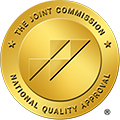Recovery is a process that requires the right tools and guidance. Outpatient programs, like those at Georgia Sky, provide structured care while allowing people to stay connected to their daily lives. This balance makes treatment more accessible for those ready to take the first step toward lasting change. This blog takes a deeper look at amphetamines and their effect on your life, followed by providing helpful tips on receiving the proper care that you deserve.
What Are Common Types Of Amphetamines And Their Uses?
- Adderall (amphetamine and dextroamphetamine). Often prescribed for ADHD, Adderall improves focus and reduces impulsivity. It’s one of the most commonly misused stimulants, particularly among students and professionals looking for an edge.
- Dexedrine (dextroamphetamine). Dexedrine primarily affects dopamine and is used to treat ADHD and narcolepsy. Its strong effect on energy and alertness also makes it prone to non-medical use.
- Vyvanse (lisdexamfetamine). Vyvanse, a newer medication, is formulated for slower activation. It treats ADHD and binge eating disorder. Though considered harder to abuse, it can still lead to dependence if not taken as prescribed.
- Evekeo (amphetamine sulfate). Sometimes used in cases of ADHD or narcolepsy, Evekeo also has historical use in weight loss treatment. Its stimulating effects can quickly become habit-forming without proper monitoring.
- Desoxyn (methamphetamine hydrochloride). Rarely prescribed today, Desoxyn is a pharmaceutical version of methamphetamine. It may be used in extreme cases of obesity or ADHD but comes with a high risk of abuse and is closely monitored.
How Does Amphetamine Addiction Develop?
As use continues, the brain begins to adapt. It reduces its own production of certain chemicals, relying more and more on the drug to function normally. What started as an occasional boost can become something the body expects in order to feel alert, motivated, or even stable. Tolerance builds, and the person might increase the dose or take the drug more often just to maintain the same effect.
Once physical or psychological dependence takes hold, stopping becomes difficult. A person might want to quit or cut back but find that the fatigue, low mood, or cravings make that goal hard to reach. They may also start organizing their day around getting or using the drug. This is often the point when daily life becomes disrupted, relationships suffer, and health begins to decline.
Amphetamine addiction treatment is designed to address these changes. It offers support through withdrawal, helps reshape thought patterns, and teaches strategies for staying drug-free. The goal is to break the cycle in a way that feels manageable and realistic, without judgment or pressure.
What Are The Signs And Symptoms Of Amphetamine Abuse?
- Unusual bursts of energy or extreme talkativeness. People may seem overly active, restless, or unable to stop talking, even when the situation calls for calm.
- Loss of appetite and significant weight loss. Regular use often leads to skipping meals and visible changes in body weight.
- Trouble sleeping or staying asleep. Stimulants can interfere with the body’s natural sleep cycle, leading to frequent insomnia.
- Mood swings or irritability. Someone might go from feeling overly confident to angry or anxious with little warning.
- Neglect of responsibilities. Work, school, or family commitments may be ignored or forgotten, even by someone who once handled them well.
- Picking at the skin or noticing repetitive behaviors. Some people develop habits like scratching or tapping that seem constant and uncontrollable.
- Dilated pupils and rapid heartbeat. Physical signs such as wide eyes and a fast pulse can suggest recent use.
- Lying about use or hiding pills. If someone begins to cover up their amphetamine use, it’s often a sign that control is slipping.
- Consuming medication beyond the prescribed dosage or using someone else’s prescription. This shift in use patterns often points to a deeper issue that might require professional help.
If several of these symptoms are present, exploring amphetamine addiction treatment may help prevent the situation from getting worse. Early support often leads to better outcomes.
What Are The Different Types Of Amphetamine Addiction Treatment Programs?
These are short-term, medically supervised settings that help people manage withdrawal symptoms in a safe environment. Detox is often the first step before moving into longer treatment.
In this residential setting, people live at the facility and receive round-the-clock care. It includes therapy, medical support, and structured activities focused on recovery.
Designed for people who do not need 24-hour supervision, outpatient care involves regular visits for counseling, group sessions, and education. It works well for those with strong support systems at home.
This option offers more structure than basic outpatient care, usually requiring multiple sessions each week. It can be a good step-down from inpatient rehab or an alternative for those who need more than minimal support.
Partial Hospitalization Programs (PHPs) offer full-day treatment, letting participants go home in the evening. They’re a great option when you need daily support but don’t require an overnight stay.
Sometimes people struggle with both addiction and a mental health issue like anxiety or depression. Our programs address both at once, leading to better long-term results.
These are structured, drug-free residences where people in recovery can live while working or attending treatment. They offer accountability and community without the full-time care of rehab.
How Does Behavioral Therapy Help In Amphetamine Addiction Recovery?
- Contingency Management (CM) uses positive reinforcement, like vouchers or prizes for negative drug tests, boosting abstinence, program retention, and minimizing relapse.
- Cognitive Behavioral Therapy (CBT) helps identify and challenge unhelpful thoughts leading to drug use. Through sessions, participants develop coping strategies for cravings, recognize triggers, and build problem-solving skills, leading to better long-term recovery.
- Programs often combine CM and CBT or other strategies like the Community Reinforcement Approach (CRA), which encourages drug-free, rewarding lives, and Motivational Interviewing (MI), which helps explore motivations for change.
These integrated therapies often yield higher success and lower dropout rates than single methods. Behavioral therapy in amphetamine addiction treatment builds resilience, helping individuals manage stress, resist cravings, and rebuild social connections for skillful living.
What Are Amphetamine Withdrawal Symptoms And Timeline?
- Start of the Crash (6–36 hours after last use)
- Intense tiredness and a sudden drop in energy
- Feelings of sadness or low mood
- Strong cravings for the drug
- Acute Withdrawal Phase (Days 1–7)
- Extreme fatigue, sleepiness, and possibly sleeping more than usual
- Appetite returns or increases sharply
- Physical discomfort like body aches, twitching, and slowed movement
- Mood swings, irritability, anxiety, or agitation
- Trouble sleeping or vivid, unsettling dreams
- Subacute Stage (Days 7–21)
- Gradual easing of the worst physical symptoms
- Lingering low mood, difficulty sustaining focus
- Occasional cravings remain persistent
- Sleep issues may continue, like insomnia or hypersomnia
- Post‑Acute Withdrawal (Beyond 3 weeks, sometimes up to a year)
- Problems with short-term memory and attention
- Continued fatigue or inconsistent energy levels
- Feeling flat or unable to enjoy things (anhedonia)
- Ongoing low mood or depression, sometimes with suicidal thoughts
- Persistent cravings, a known relapse trigger
- Variations Based on Usage Patterns
- Heavy or long-term users typically experience heavier symptoms and may take longer to recover
- Medical or high-strength prescription users may have milder withdrawal, especially with a gradual taper
What Can Be Expected From Outpatient Rehab At Georgia Sky?
You start with a comprehensive intake: a medical review, substance-use assessment, and mental-health screening. Once we have that, we’ll put together a personalized detox plan just for you. You attend sessions daily, typically for 14–21 days, at one of our clinics, receiving medical support, medication management, and monitoring designed to ease withdrawal while you stay at home.
Sessions are offered during morning, evening, or weekend hours to accommodate work, school, or family responsibilities. This outpatient structure allows recovery without giving up daily commitments .
Therapies include cognitive behavioral therapy, motivational interviewing, relapse prevention, and individual and group counseling. These sessions help you identify triggers, learn coping strategies, and reshape thought patterns.
Even as an outpatient, you have around-the-clock access to clinicians. If symptoms worsen or new needs emerge, the team can respond promptly and update your care plan.
Once detox wraps up, Georgia Sky builds a long-term recovery roadmap, including referrals to sober living, continued therapy, alumni groups, or mental-health care. This helps bridge the gap between treatment and everyday life.
As an organization accredited by the Joint Commission, Georgia Sky accepts most commercial insurance plans. Costs are generally lower than inpatient programs, making care more accessible while maintaining high quality .
Reviews highlight caring and attentive teams who prioritize individual progress. Clients report feeling supported through withdrawal and grateful for the clinical, emotional, and practical support they receive.
Contact Georgia Sky Outpatient Detox To Start Your Recovery Journey
Starting recovery can feel overwhelming, but outpatient detox allows you to receive treatment while maintaining daily responsibilities. At Georgia Sky, we’re here to help you safely manage withdrawal symptoms with our professional support always available. If you’re ready to make a change, reaching out could be the turning point you need. Contact us today to begin the next phase of your life free from addiction’s grasp.




